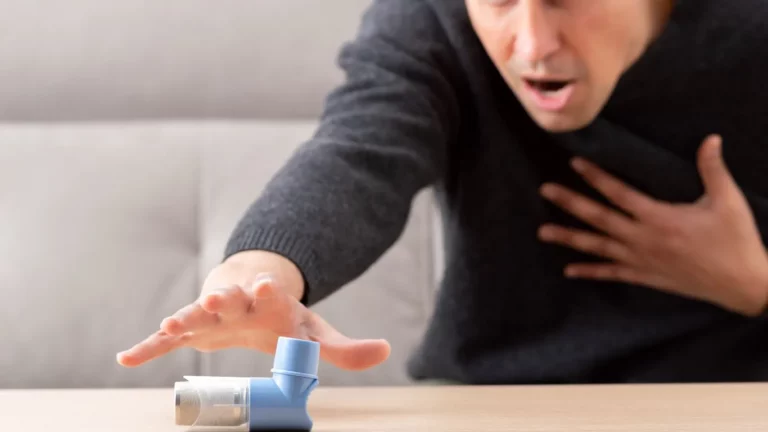Effective High Blood Pressure and Brain Fog Solutions for Mental Clarity
Living with high blood pressure can feel overwhelming, especially when it starts affecting your day-to-day life in unexpected ways. As a hypertension expert, I’ve worked with many people who report experiencing a variety of symptoms, but one of the most frustrating and lesser-discussed issues is the link between high blood pressure and brain fog.
If you’ve ever found yourself struggling to focus, feeling mentally drained, or just not as sharp as usual, you might be wondering if there’s a connection between your high blood pressure and that persistent sense of mental cloudiness. In this post, we’ll explore the science behind it, share some real-life experiences, and provide practical solutions for managing brain fog related to high blood pressure.
Understanding the Connection: High Blood Pressure and Brain Fog

High blood pressure, also known as hypertension, is often referred to as the “silent killer” because it doesn’t always present obvious symptoms, yet it can cause serious damage to your body over time. It’s easy to focus on the physical health risks – heart disease, stroke, kidney damage – but did you know it can also impact your brain? In fact, research shows that chronic high blood pressure can impair cognitive function and contribute to brain fog.
Brain fog isn’t a medical condition in itself, but a term used to describe a variety of symptoms including poor memory, lack of focus, difficulty concentrating, and mental fatigue. For many of us dealing with high blood pressure, the cognitive effects can be just as debilitating as the physical ones. It’s frustrating when your brain just doesn’t seem to work the way it used to. But don’t worry, there are solutions!
Why Does High Blood Pressure Cause Brain Fog?
To understand why high blood pressure affects brain function, let’s dive into the mechanics of the issue. When blood pressure is elevated, it places additional stress on your blood vessels, particularly those in the brain. Over time, this can lead to damage in the small blood vessels that supply oxygen and nutrients to your brain. The result? Less efficient brain function, which can manifest as forgetfulness, slower processing speeds, or that feeling of being mentally “off.”
One of the key reasons brain fog occurs is reduced blood flow to the brain. This means less oxygen and fewer nutrients are reaching your brain cells, which are essential for optimal cognitive performance. Think of it as trying to drive a car without enough fuel – the car can still run, but it won’t perform at its best. Similarly, your brain’s performance suffers when it’s not getting what it needs to work efficiently.
Other Contributing Factors to Brain Fog in Hypertension
While high blood pressure plays a significant role in brain fog, it’s not the only factor at play. Several other elements can contribute to that fuzzy feeling, especially in people with hypertension.
- Medications: Many people with high blood pressure are prescribed medications like beta-blockers, diuretics, or ACE inhibitors. While these drugs are effective in managing blood pressure, they can sometimes have side effects like dizziness, fatigue, or cognitive impairment, which can worsen brain fog.
- Stress: Chronic stress is a major contributor to both high blood pressure and brain fog. When you’re stressed, your body releases stress hormones like cortisol, which can further elevate blood pressure and impair brain function.
- Poor Sleep: Many people with high blood pressure also struggle with sleep issues, such as insomnia or sleep apnea. Poor sleep quality can worsen cognitive decline and contribute to feelings of mental fog.
- Diet and Nutrition: A poor diet, especially one high in salt, sugar, and unhealthy fats, can exacerbate both high blood pressure and brain fog. Proper nutrition plays a vital role in supporting brain health, so if your diet is lacking, it could be affecting your ability to think clearly.
Managing High Blood Pressure and Brain Fog: Practical Solutions

If you’re dealing with high blood pressure and brain fog, the good news is that there are plenty of steps you can take to manage both issues effectively. While there’s no magic bullet, making a few lifestyle changes can significantly improve your cognitive function and overall well-being. Here are some tips that have worked for many of my patients:
1. Control Your Blood Pressure
The most important first step is to keep your blood pressure under control. If your blood pressure is consistently high, it’s important to follow your doctor’s recommendations for managing it. This might include medication, but lifestyle changes are just as important. Regular exercise, a healthy diet, and stress management techniques can help keep your blood pressure in check.
2. Incorporate Brain-Boosting Foods
What you eat plays a huge role in both your blood pressure and cognitive function. Eating foods rich in antioxidants, omega-3 fatty acids, and vitamins can help improve brain health. For example:
- Leafy Greens: These are packed with nitrates, which help improve blood flow and may lower blood pressure.
- Fatty Fish: Omega-3 fatty acids in fish like salmon and mackerel support brain health and can help reduce inflammation.
- Blueberries: Known for their powerful antioxidants, blueberries can help protect the brain from oxidative stress and improve memory.
3. Prioritize Sleep
If you’re not sleeping well, you’re not giving your brain the time it needs to repair and refresh. Aim for 7-9 hours of quality sleep per night. If you have sleep apnea or other sleep disorders, seek medical treatment – improving your sleep can have a profound effect on both your blood pressure and mental clarity.
4. Manage Stress Effectively
Stress management is key in reducing both high blood pressure and brain fog. Try relaxation techniques like deep breathing, meditation, or yoga to calm your mind and lower your stress levels. Regular physical activity can also help reduce stress and improve cognitive function.
In the next section, we’ll explore even more tips and solutions for managing brain fog caused by hypertension and look into natural remedies that can further support your mental clarity.
Natural Remedies for High Blood Pressure and Brain Fog

If you’ve been dealing with high blood pressure and brain fog for a while, you’re probably looking for solutions that don’t just rely on medication. While prescription drugs can be helpful, there are plenty of natural ways to manage both your blood pressure and cognitive health. As someone who has spent years working in this field, I can tell you that lifestyle changes, particularly in the areas of diet and stress management, can make a world of difference.
1. Herbal Supplements That Support Cognitive Function
Herbs have been used for centuries to support health, and several can help with both hypertension and brain fog. I always tell my patients that while herbs can be incredibly powerful, it’s essential to talk to your doctor before trying any new supplements. With that in mind, here are some herbs that may help:
- Ginkgo Biloba: Known for improving circulation, ginkgo biloba can help increase blood flow to the brain, which might reduce brain fog. Plus, it’s often used to improve memory and cognitive function in those who suffer from reduced brain blood flow.
- Hawthorn: This herb has been shown to help lower blood pressure by relaxing blood vessels and improving blood flow. When blood pressure is controlled, the risk of brain fog often decreases as well.
- Turmeric: Curcumin, the active compound in turmeric, has potent anti-inflammatory properties. Since inflammation in the brain is linked to cognitive decline, incorporating turmeric into your diet can support brain health and mental clarity.
2. The Role of Omega-3 Fatty Acids
If you haven’t already incorporated omega-3 fatty acids into your diet, now might be the time. Omega-3s are essential fats that play a vital role in brain health, and they can help reduce inflammation, improve memory, and enhance overall cognitive function. Studies show that omega-3s can also help lower blood pressure, making them a powerful tool for both managing hypertension and reducing brain fog.
One of my personal favorite ways to get omega-3s is through fatty fish like salmon, mackerel, and sardines. If you’re not a fan of fish, consider taking a high-quality fish oil supplement. I always recommend looking for a product that’s been tested for purity to avoid contaminants.
3. Hydration: The Key to Mental Clarity
One of the simplest yet most overlooked ways to manage brain fog is staying hydrated. Dehydration is a common cause of cognitive issues like poor concentration and mental fatigue. When your body is dehydrated, it can’t perform optimally – and neither can your brain. Proper hydration helps improve blood circulation, including to the brain, and supports mental clarity. If you’re dealing with high blood pressure, dehydration can also put additional strain on your cardiovascular system.
I always advise my patients to drink plenty of water throughout the day. If you’re someone who struggles to remember to drink enough, try keeping a water bottle with you at all times. Adding a slice of lemon or cucumber can make it a little more enjoyable, too!
How to Create a Hypertension-Friendly Exercise Routine

Exercise isn’t just about weight loss – it’s one of the most effective ways to manage high blood pressure and keep your brain sharp. I can’t emphasize this enough: regular physical activity has a powerful effect on both your cardiovascular system and brain function. Not only does it help lower blood pressure, but it also boosts the flow of oxygen and nutrients to your brain, which helps fight off brain fog.
1. Aerobic Exercise
Aerobic exercises like walking, jogging, swimming, or cycling are excellent for improving heart health and reducing blood pressure. Studies show that engaging in moderate-intensity aerobic activity for just 30 minutes a day, most days of the week, can significantly reduce blood pressure. Additionally, aerobic exercise promotes the growth of new brain cells and enhances memory, making it an all-around winner for those struggling with brain fog.
2. Strength Training
While aerobic exercise is essential, strength training can also benefit your blood pressure and cognitive function. Lifting weights or using resistance bands can help increase muscle mass, which, in turn, can improve your metabolism and help regulate blood pressure. Plus, strength training has been shown to reduce symptoms of depression and anxiety, which can contribute to mental fatigue and brain fog.
3. Yoga and Relaxation Exercises
If you find high-impact exercise too challenging, yoga can be an excellent alternative. Not only does yoga promote flexibility and balance, but it also helps reduce stress, which is a major contributor to both high blood pressure and brain fog. Many of my patients report feeling more focused and clear-headed after just a few sessions of yoga. Deep breathing techniques, such as pranayama, are especially beneficial for reducing stress and promoting relaxation.
It’s important to remember that exercise doesn’t have to be extreme to be effective. The key is consistency. Whether you’re walking around the block, doing a light yoga session, or swimming laps, regular physical activity will have a positive impact on both your blood pressure and mental clarity.
How Sleep Quality Impacts High Blood Pressure and Brain Fog

It’s no secret that sleep is crucial for overall health, but did you know that poor sleep can exacerbate both high blood pressure and brain fog? When we don’t get enough restorative sleep, our bodies become stressed, and blood pressure tends to rise. Furthermore, lack of sleep directly impacts cognitive function, leading to memory problems, difficulty concentrating, and that dreaded feeling of brain fog.
1. Aim for Consistent, Quality Sleep
It’s important to not only aim for 7-9 hours of sleep per night, but also to ensure that your sleep is restful. This means creating a sleep-friendly environment: a cool, dark room, a comfortable mattress, and minimizing noise. I recommend my patients stick to a consistent sleep schedule as much as possible – going to bed and waking up at the same time every day helps regulate your internal clock and promotes better sleep quality.
2. Treat Sleep Disorders
If you have sleep apnea or another sleep disorder, it’s essential to seek treatment. Sleep apnea, in particular, is closely linked to high blood pressure, and untreated sleep apnea can worsen brain fog by disrupting the restorative phases of sleep. If you suspect you have sleep apnea, don’t wait to get checked out by a healthcare professional.
In the next section, we’ll continue exploring even more practical steps and strategies for managing brain fog caused by high blood pressure, including lifestyle modifications and mental exercises that can help you regain focus and clarity.
Additional Lifestyle Changes to Improve Brain Function and Lower Blood Pressure

If you’ve been following along so far, you’ve already learned some great tips for managing both high blood pressure and brain fog. But there’s always more we can do to help ourselves feel better and regain that mental sharpness. In this final part of the article, I’m going to dive deeper into a few additional lifestyle changes that can have a big impact on both your physical and mental health.
1. Reduce Your Salt Intake
One of the most common contributors to high blood pressure is excess sodium. Many of us unknowingly consume way more salt than we need, especially when we’re eating processed or pre-packaged foods. In my practice, I often encourage patients to be mindful of their salt intake. Reducing sodium can be one of the most effective ways to lower blood pressure, which can directly alleviate symptoms of brain fog.
It’s not about completely eliminating salt from your diet, but rather about making smarter choices. Opt for fresh fruits and vegetables, lean proteins, and whole grains – all of which are naturally low in sodium. Cooking your meals at home rather than relying on restaurant food or take-out is another excellent way to keep your sodium levels in check. Try seasoning your food with herbs and spices instead of salt to add flavor without the added risks of hypertension.
2. Mindfulness and Meditation for Stress Reduction
Let’s be real: life can be stressful. Between work, family, and everything else, stress can easily build up. The problem is that chronic stress is a double-edged sword when it comes to hypertension and brain fog. It raises blood pressure and impacts mental clarity, which can create a frustrating cycle. But the good news is that you can take steps to break that cycle with mindfulness and meditation.
These practices might seem a bit “woo-woo” to some, but I’ve seen time and again how they can make a world of difference in the lives of my patients. Meditation, even for just 10-15 minutes a day, can significantly lower stress levels and, as a result, reduce blood pressure. Additionally, mindfulness helps us become more aware of our thoughts and emotions, which can help reduce the mental fog that often accompanies hypertension.
If you’re new to meditation, start small. Try apps like Headspace or Calm to guide you through short sessions. The key is consistency, so try to make it a part of your daily routine. Over time, you’ll likely notice that you feel calmer and more focused, both physically and mentally.
3. Mental Exercises for Sharpening Cognitive Function
Brain fog can make it hard to think clearly, but the good news is that you can actually improve your mental clarity with regular cognitive exercises. Just like physical exercise strengthens your body, mental exercises can strengthen your brain. In my experience, I’ve seen patients who suffer from brain fog experience significant improvement by simply engaging in activities that challenge their brains.
Some effective cognitive exercises include:
- Sudoku and Crossword Puzzles: These puzzles challenge your memory and problem-solving skills, helping you stay sharp and improve your focus.
- Learning Something New: Taking up a new hobby, whether it’s playing an instrument or learning a new language, stimulates your brain and boosts cognitive function.
- Memory Exercises: Try memorizing a list of words or numbers, then practice recalling them. This can help sharpen your memory and improve mental clarity.
While mental exercises alone won’t cure high blood pressure or brain fog, they can certainly help keep your brain active and engaged, making it easier to focus and think clearly.
How to Monitor Your Progress: Keep Track of Your Health

When you’re making changes to your lifestyle, it’s crucial to track your progress to see what’s working and what might need adjusting. This is especially true when it comes to high blood pressure and brain fog, as both can be difficult to monitor without regular check-ins.
1. Regular Blood Pressure Monitoring
One of the easiest and most effective ways to keep track of your blood pressure at home is by using a blood pressure monitor. There are plenty of affordable and accurate monitors available, and having one at home allows you to monitor your levels in real-time. Aim to take your blood pressure readings at the same time every day, ideally in the morning before you eat or drink anything. If you notice any sudden spikes or if your readings are consistently high, it’s important to reach out to your healthcare provider for further guidance.
2. Track Your Mental Clarity
In addition to monitoring your blood pressure, it’s also helpful to track your cognitive function. While brain fog can be difficult to measure, keeping a journal of how you feel each day can give you valuable insights. Note down when you’re feeling foggy, what you were doing, and any other relevant factors (such as stress levels, diet, or sleep). Over time, you may start to notice patterns that help you pinpoint triggers or solutions that work best for you.
If you’re not sure where to start, you can use simple tools like the “Cognitive Function” scale, which asks you to rate your memory, focus, and overall mental sharpness on a scale of 1 to 10 each day. This can help you track improvements and identify areas where you may need to make adjustments.
3. Collaborate with Your Healthcare Provider
As you make changes to manage your blood pressure and brain fog, it’s essential to work closely with your healthcare provider. They can provide support, recommend treatments, and monitor your progress. It’s especially important to keep them informed about any changes to your blood pressure readings, medications, or new supplements you may be trying. Collaboration ensures that you’re on the right path to both better blood pressure and improved cognitive health.
References
- Hypertension and Brain Fog Management
- Understanding High Blood Pressure and Its Effects on Mental Health
Disclaimer: The content in this article is intended for informational purposes only and is not a substitute for professional medical advice. Always consult with a healthcare provider before making any significant changes to your health regimen, including diet, exercise, or medication adjustments.

Dr. Gwenna Aazee is a board-certified Internal Medicine Physician with a special focus on hypertension management, chronic disease prevention, and patient education. With years of experience in both clinical practice and medical writing, she’s passionate about turning evidence-based medicine into accessible, actionable advice. Through her work at Healthusias.com, Dr. Aazee empowers readers to take charge of their health with confidence and clarity. Off the clock, she enjoys deep dives into nutrition research, long walks with her rescue pup, and simplifying medical jargon one article at a time.







